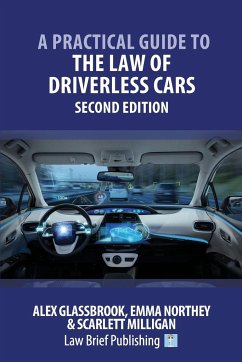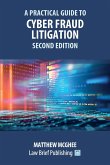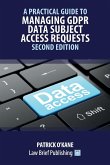With the increase in numbers of electric vehicles, automated driving systems are becoming widespread. The next phase of the evolution in road vehicles - towards fully-automated cars - is nearly upon us. Since the publication of the first edition of this book, a cornerstone piece of legislation (the Automated and Electric Vehicles Act 2018) has appeared on the British statute book, though it is yet to be brought into force. Accordingly, this second edition moves away from theoretical discussion toward analysis of that legislation, and of other legal problems which will be engaged by the introduction of all forms of automated driving systems. This edition offers practical commentary on questions such as: When the technology arrives, how will the courts react? What arguments might emerge? What does the legislation currently cover? What shape might future laws take in a world of artificially intelligent vehicles? Covering key topics including road traffic accidents, product liability claims, privacy, and the ways in which society might regulate these vehicles, "A Practical Guide to the Law of Driverless Cars - Second Edition" is an indispensable guide to the British laws of automated vehicles, and to the legal problems and solutions of our near-future. ABOUT THE AUTHORS The authors are barristers at Temple Garden Chambers in London. Alex Glassbrook is a specialist in the law of connected and autonomous vehicles. He wrote the first British book on the subject, "The Law of Driverless Cars: An Introduction" (also published by Law Brief Publishing) in 2017. He contributed to the civil liability part of the Law Commission's 2018 consultation on the law of automated vehicles. His practice features all aspects of civil road transport law, including motor insurance, counter-fraud and catastrophic personal injury cases. Alex is recommended as a leading barrister by both of the British bar directories (Chambers UK Bar and the Legal 500), which have described him as "skilled in handling digital evidence and technology development issues", "a true expert" and "the most forensic advocate". Emma Northey specialises in personal injury, inquests, civil fraud and regulatory law. Before coming to the Bar, Emma was a Trading Standards Officer for 15 years. She has an in-depth knowledge of all aspects of consumer protection and regulatory crime, and a particular interest in the challenges posed by the regulation of novel goods and services. Emma's interest in inquest law began during her time as an investigator, dealing with the tragic consequences of the supply of defective products. More recently, she has acted for Interested Persons in a number of complex and high profile inquests. Scarlett Milligan has a busy practice encompassing public law, regulatory work and personal injury claims. This gives her a valuable insight into the numerous issues which driverless vehicles are likely to present at the policy level, in practice, and across the broader legal landscape. She has a particular interest in the civil regulation of human activity by the state, and the policy choices which have to be made in the management of risk within society. A primary focus of her work on the law of driverless vehicles has been the novel duties which may be imposed - whether by the courts or legislation - in respect of the manufacture and operation of driverless vehicles, and the challenges associated with such duties coming into operation alongside existing regimes. Scarlett looks forward to seeing how the courts grapple with these issues as well as the problems posed by human interaction with robotics and artificial intelligence systems.
Hinweis: Dieser Artikel kann nur an eine deutsche Lieferadresse ausgeliefert werden.
Hinweis: Dieser Artikel kann nur an eine deutsche Lieferadresse ausgeliefert werden.








